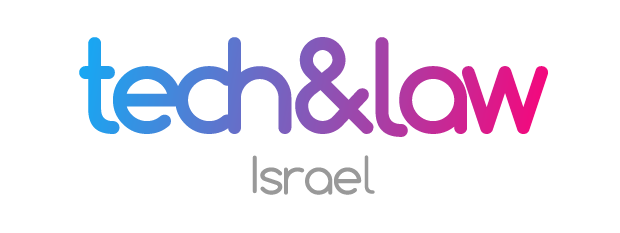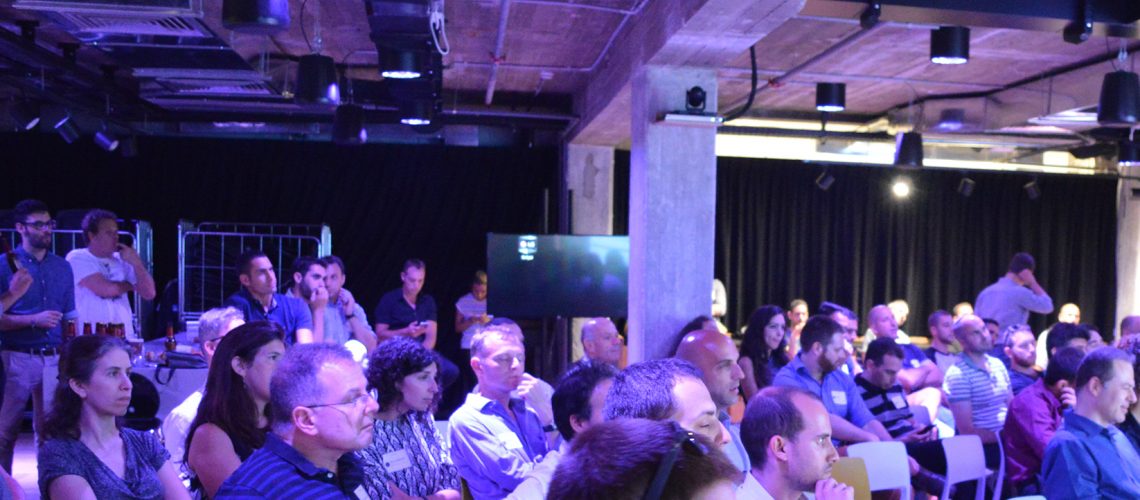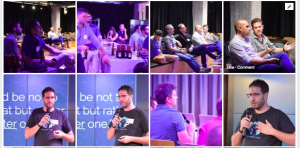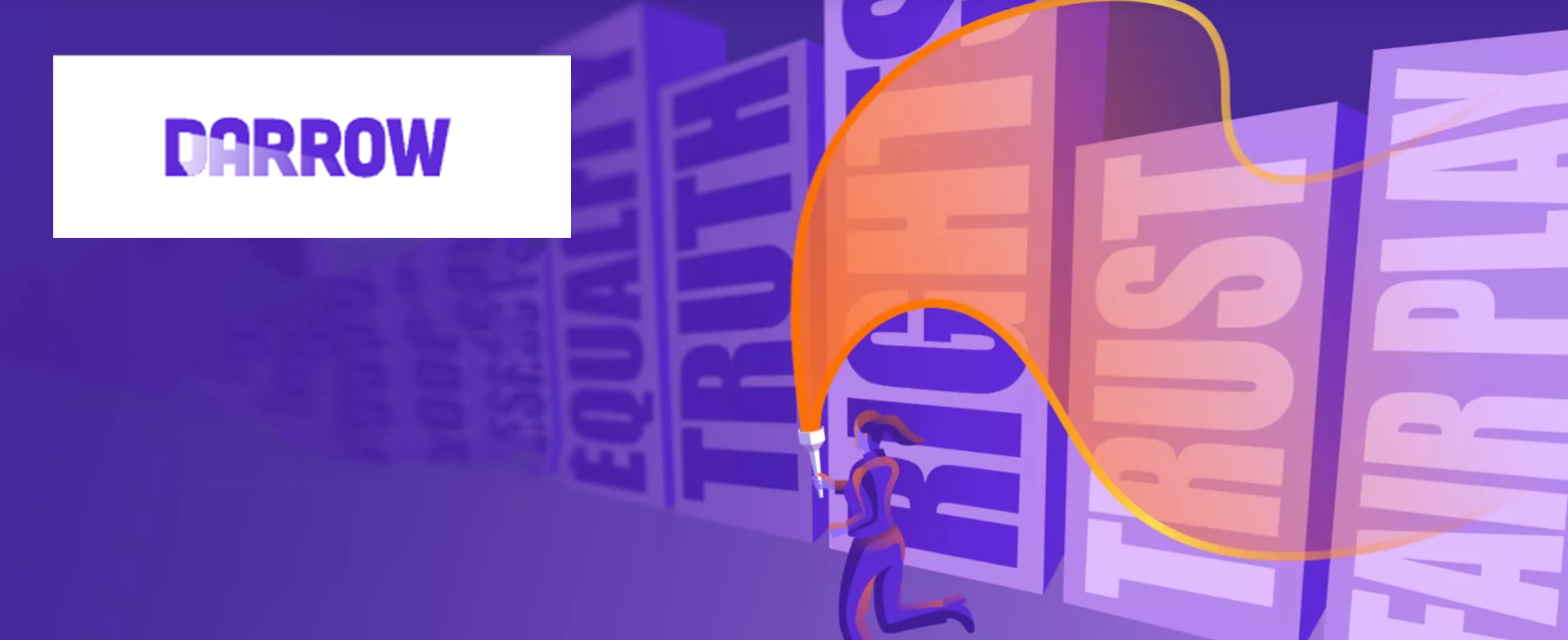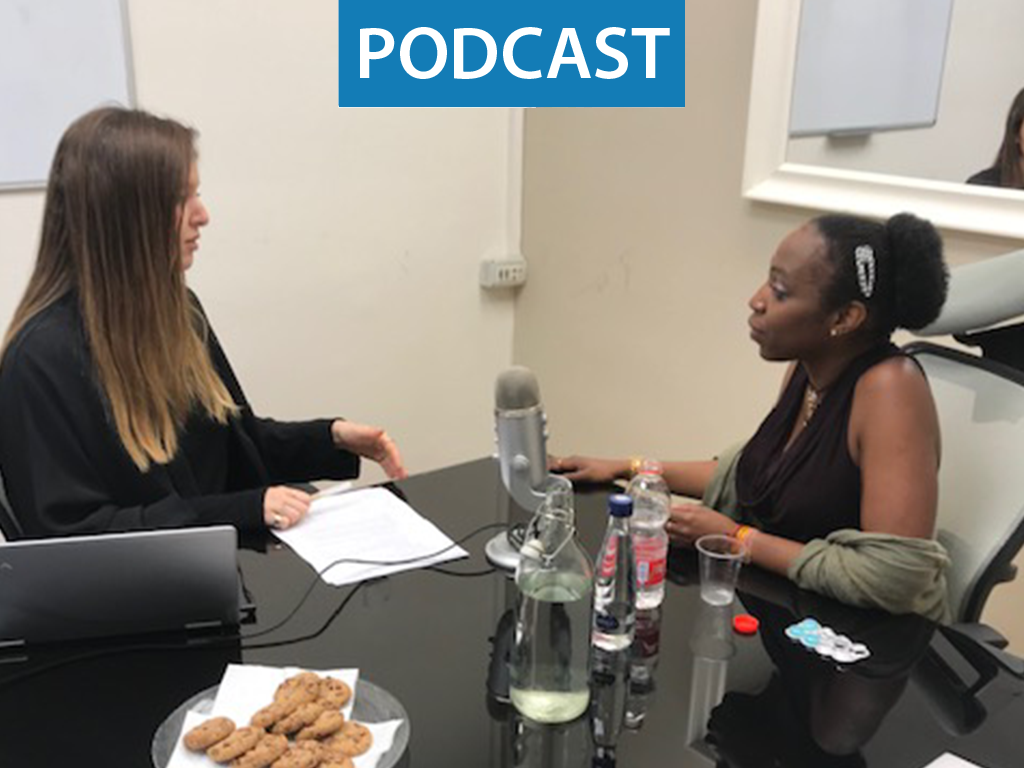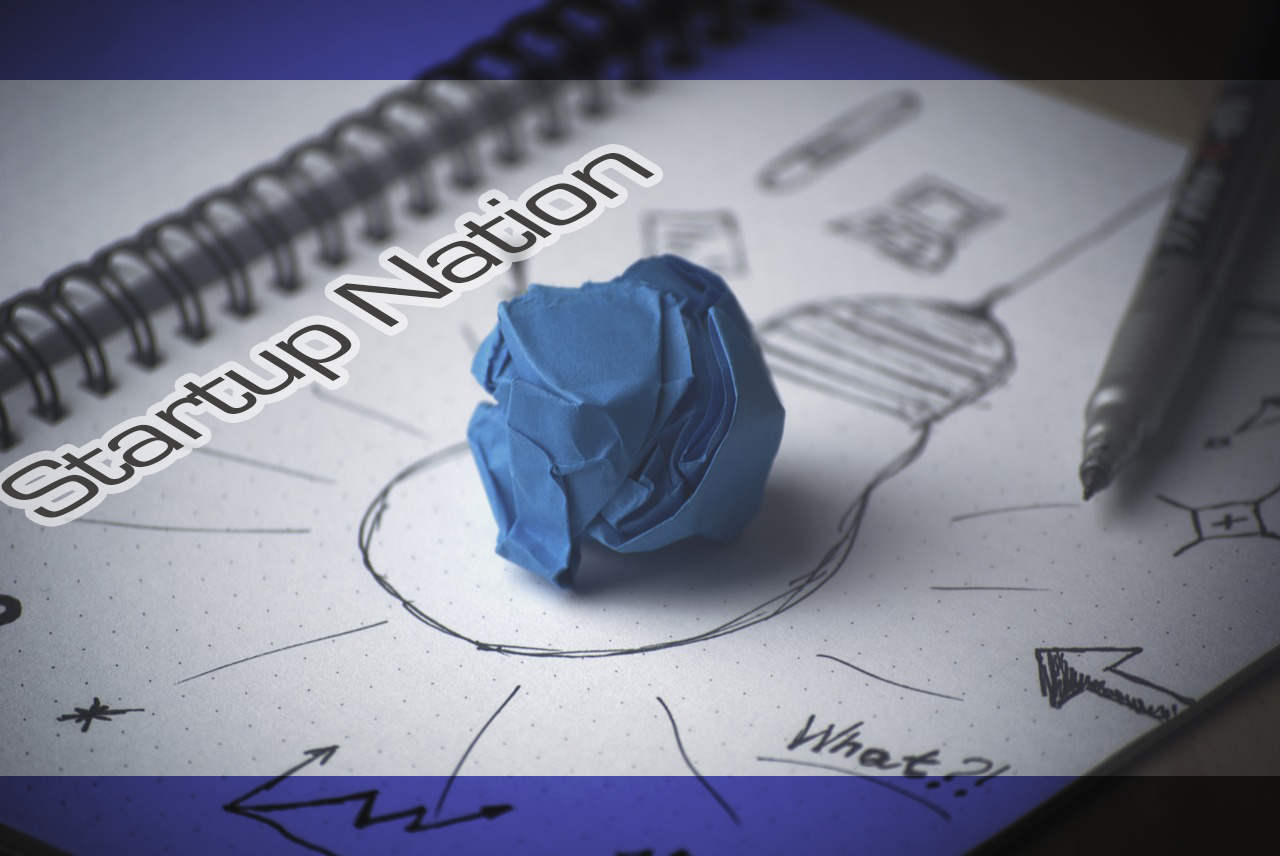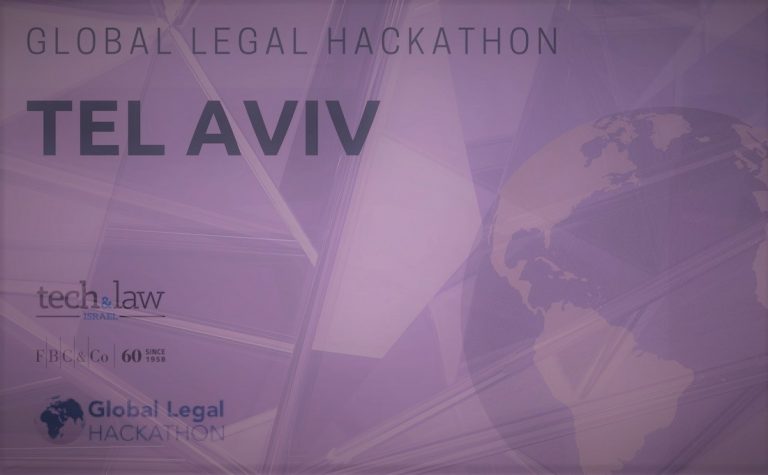A year ago, when we founded our Israeli legal tech platform – Tech&Law – we dreamed of the day in which dozens of people – all sharing our passion for legal technology – will gather for the first time here in the holy land. Last week that happened.
Associates, Partners, Business Development Managers, Academic Scholars, Entrepreneurs and Tech Specialists, all sharing the will to take the Israeli legal market forward using technology, have all gathered in Rise Tel Aviv last Monday (12/9).
“Legal Tech isn’t the future – it’s the present”
The event was opened by Adv. Zohar Fisher, Founder and Owner of Robus Legal Marketing and Consulting Services, the leading legal marketing firm in Israel which also stands behind tech&law. Adv. Fisher congratulated the participants for coming and told about his fortuitous participation in a legal tech conference in London last year. This first encounter with the legal technology market left a very strong impression, he told, leading to the decision to found Israel’s first legal technology platform. The fact that large legal tech conferences are taking place around the world for over a decade now and that advanced tech solutions are already changing everything we knew about the legal market, he claimed, shows that legal tech is not the future anymore, rather it is the present.
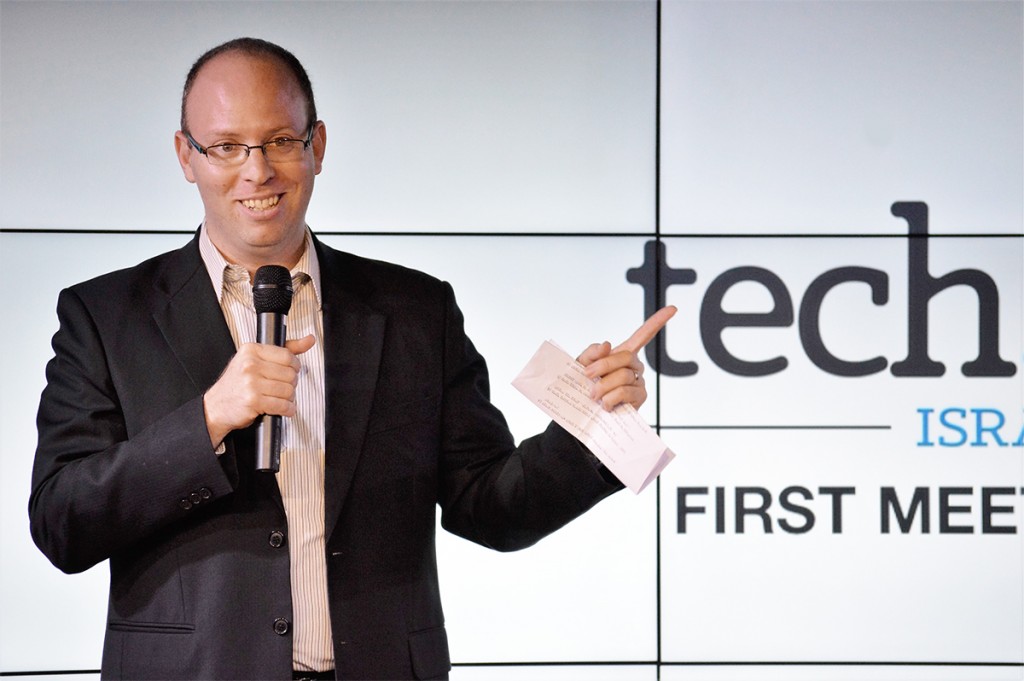
“Lack of communication between lawyers and techies delays the progress of legal tech in Israel”
Ido Goldberg, head of the tech&law platform, was next to speak. Technology has changed every aspect of our lives in past decades, he said, and the legal market is no different. For instance, he showed, from only 15 startups registered as “Legal tech startups” in Angel List database in 2009, over 1200 companies are registered today. Not only that but also the amounts of money invested in legal tech startups have grown significantly over the past years. From approx. $90 million invested in the field at 2011, almost $300 million have been invested in legal tech startups in 2015. And so, Ido explained, the picture is clear; Undoubtedly, the legal tech market has evolved dramatically over the past years. Nonetheless, the market is still mostly American.
And if so, the question of “why?” should arise, Ido said. Israel is known for its ultra-competitive legal market on the one hand (first in the world in lawyer per-capita), and its vibrant tech scene on the other. So, it seems only natural that it will also stand in the forefront of the Legal technology market, he claimed. Several answers can be suggested: first, maybe it is simply a question of time. Tech trends in the US occasionally take time to arrive to Israel.
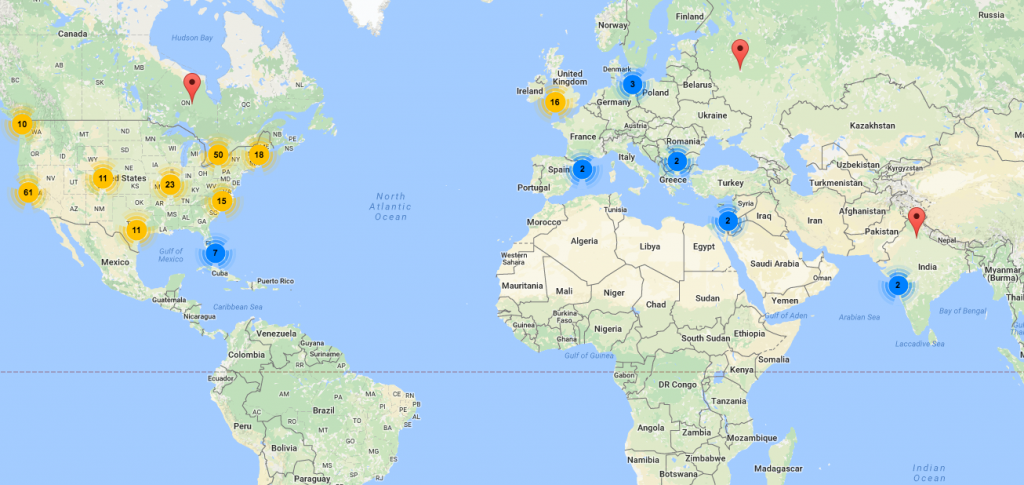
Also, it might be due to the Language barrier. Hebrew is only spoken by 9 million people around the world, a fact that can make the development of Israeli legal tech solutions not financial-worthy. It may also be that the Israeli legal market is very conservative in its nature, Ido said, but at the same time, there is no reason to believe it is more conservative than the American one. With all of that being said, one reason must be a part of the answer, Ido said – Lack of communications between lawyers and techies. “Sometimes it seems as if lawyers are from Venus and techies are from Mars”, he explained.
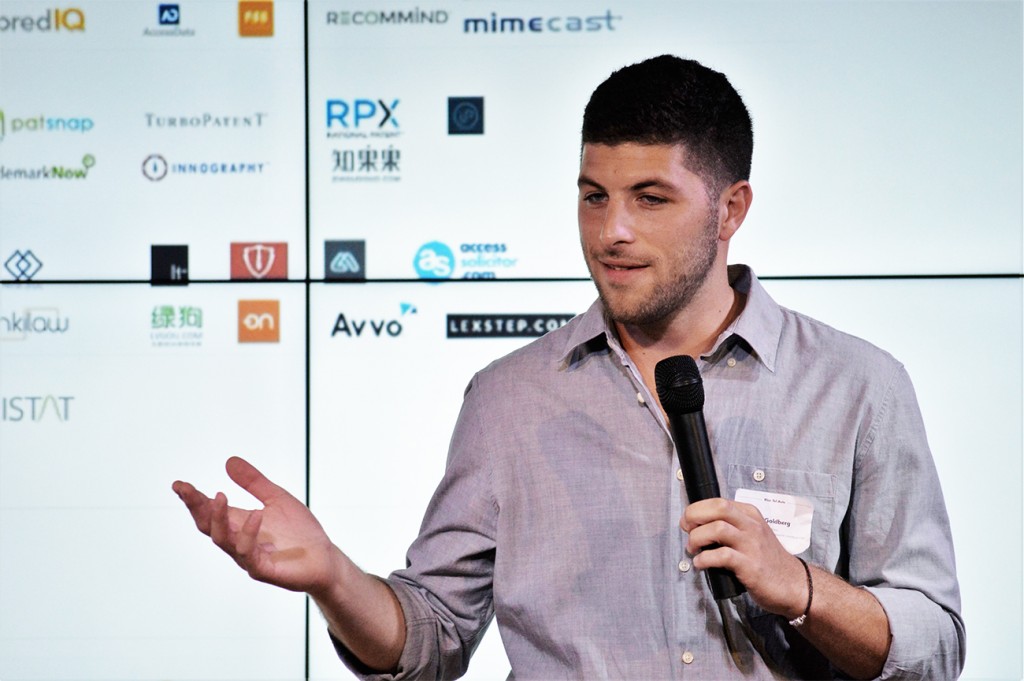
The solution, Ido claimed, is to form an Israeli community consisted of both lawyers and techies, which will help improve the communication between the sides thus advancing the Israeli legal tech scene. This is the reason, he said, Robus has decided to found tech&law.
Ido went on to tell the crowd about tech&law’s various activities over the past year. Amongst others, the foundation of the first Hebrew site about legal tech, publishing ongoing news, updates and interviews about the legal tech scene in Israel and around the world, the forming of strong ties with legal tech specialists around the world (and the membership in the international legal tech network legal pioneer), and of course the establishment of the first Israeli legal tech community.
Ido finished his presentation in encouraging the crowd to take an active role in the community. He invited the participants to send ideas and suggestions for future conferences, and also to send articles and blog posts to be published in tech&law’s blog.
“There are so many different solutions out there – all you need to do is adopt the best of them”
After Ido, Noory Bechor, CEO of A.I legal tech startup – Lawgeex, was invited to stage. The company Noory founded provides contract analysis tool using A.I and machine learning, and is widely considered to be one of the world’s leading companies in the field of A.I legal tech. Noory, once an associate in one of Israel’s leading law firms, told the crowd about his decision to become an entrepreneur. “For years I’ve helped other people’s businesses. In one point I decided I had enough, and I want to build something of my own”, he explained.
Noory proceeded to give general tips to the entrepreneurs in the crowd. First, he explained, decide what’s the “pain” you want to tackle. For him, he said, the “pain” was the inherent inefficiency in lawyers’ work: instead of focusing on qualitative work, lawyers are drawn into doing mainly technical work he explained. Further, Noory recommended “getting out of the lab ASAP”, meaning instead of trying to perfect your product, get it out to the market as soon as possible. The feedback you’ll get from users, he said, will be much more valuable.
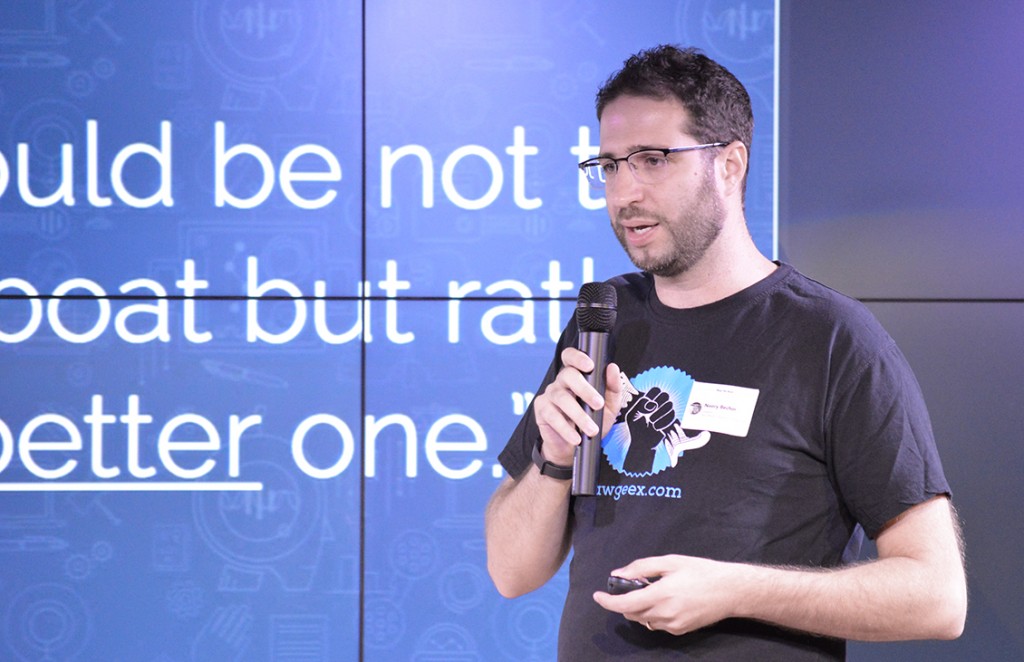
As soon as Noory finished talking, many hands rose and many questions were asked. These are some:
“When the legal service is provided by a machine, who is liable for the outcome?”
First, Noory said, people also make mistakes. Not one single startup company can assure its product is mistake-free. Nonetheless, he added, the machine’s chance of making a mistake is dramatically lower than that of the lawyer. Also, one should bear in mind that when a lawyer uses a certain tool, he is still liable for the outcome. Noory concluded his answer with a suggestion. “I always recommend my clients to use the system in high volume\low risk contracts”, he said.
“Why I, as a lawyer, should care about implementing technology in our market, when in fact these exact same technologies can lead to a situation where fewer lawyers are required?”
“I get this question a lot,” Noory said. He then went on to calm the lawyers in the crowd. According to him, we’re not expected to see lawyers losing their job to technology in the decade to come. The tech solutions we are currently seeing in the market, and those we are expected to see in coming years, simply make lawyer’s work more efficient. These solutions help and are expected to continue helping
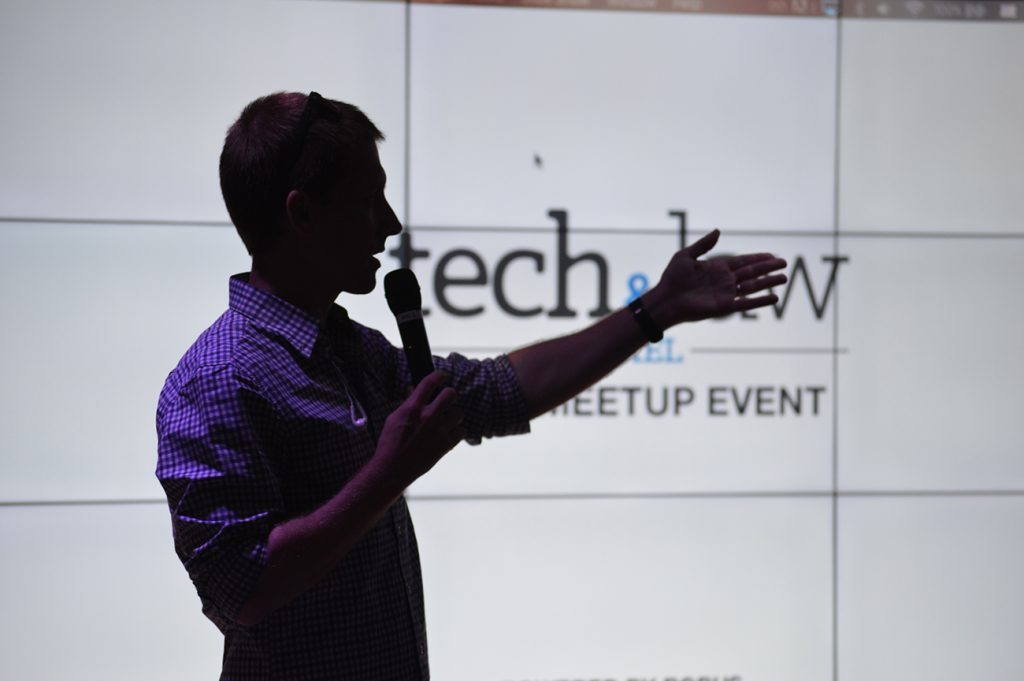
lawyers do their work better and provide clients with better services. Obviously, he added, we cannot really tell what the future holds for the legal market. But it sure seems to him that the implementation of tech solutions in the field will only make lawyers stronger in the long term.
“let’s say I’m convinced. Where do I begin? Which solutions can I adopt tomorrow in order to improve the way lawyers in my firm work?”
Noory answered that there are many solutions out there, each answering a different “pain” and a different need. He recommended to first identify the places requiring improvement in the firm, and only then to start looking for the right solutions. In regard to finding the solutions itself, he said, the tech&law platform can be of much help.
“Would you start this journey all over again if you had to?”
Noory answered shortly and decisively – yes.
We loved hosting you at the first-ever legal tech conference event in Israel! Subscribe to our newsletter and stay up to date.
